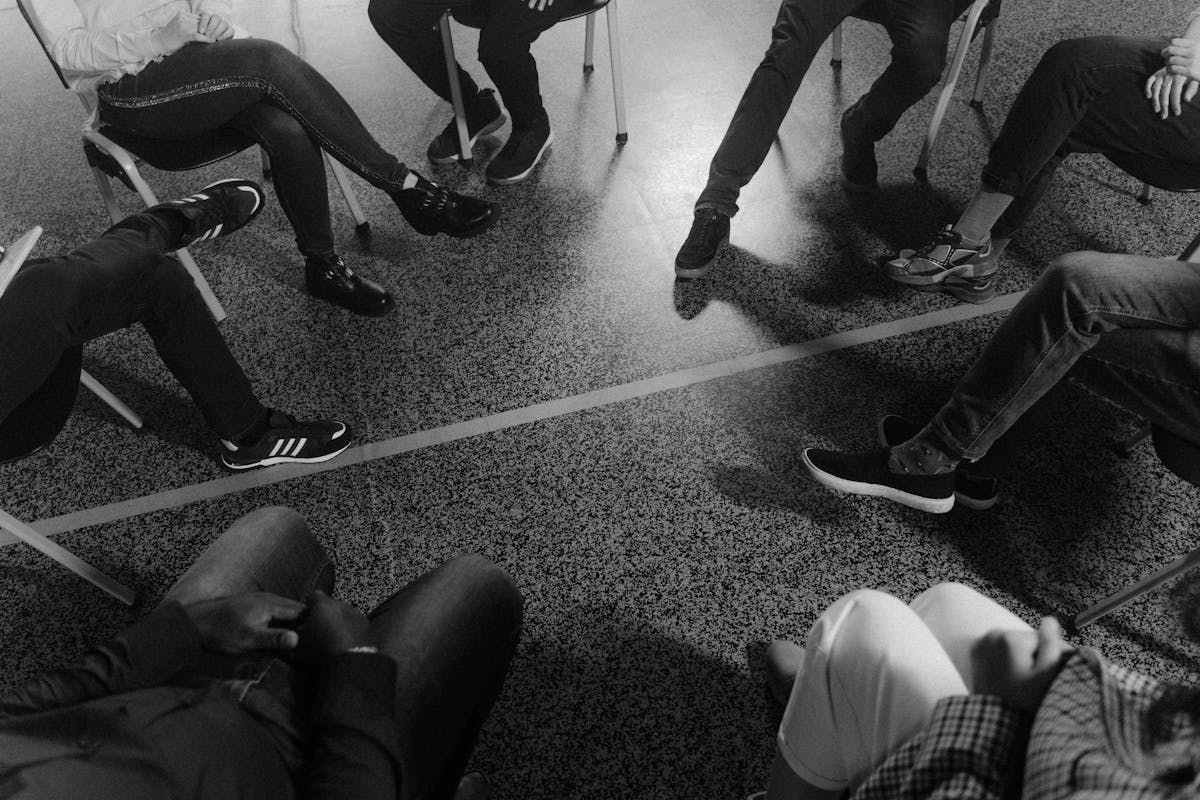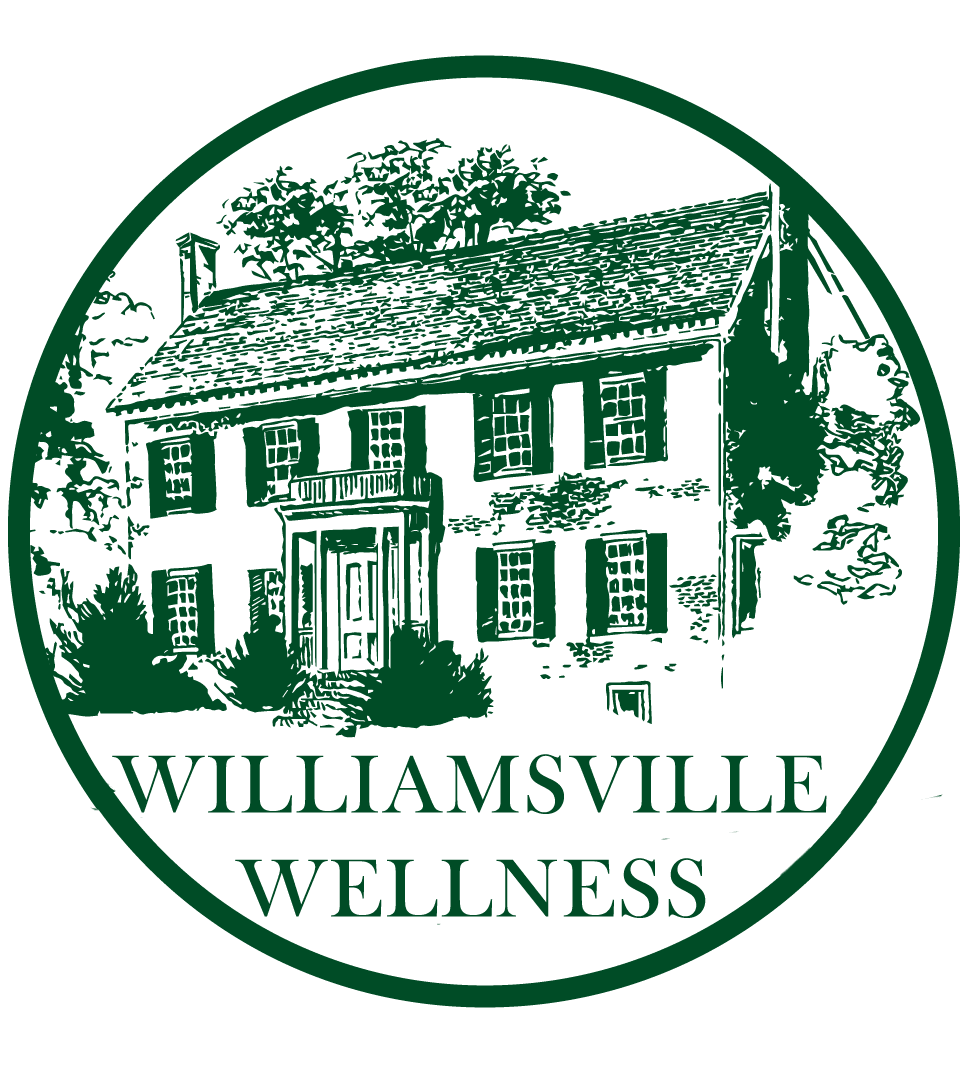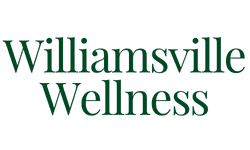The Hidden Connection Between Sleep Disorders and Addiction Recovery
Understanding how quality sleep supports lasting sobriety and prevents relapse in recovery
📚 What You'll Discover in This Guide
- Understanding Sleep Disorders in Recovery
- The Widespread Impact of Sleep Problems
- The Bidirectional Relationship
- Sleep Deprivation and Relapse Risk
- The Neuroscience of Sleep and Addiction
- Effective Treatment Approaches
- Cognitive Behavioral Therapy for Insomnia
- Sleep Hygiene for Recovery
- Medication Considerations
- Building a Foundation for Recovery
When individuals enter addiction treatment, they often focus on abstaining from substances and learning new coping skills. However, one of the most significant yet frequently overlooked factors affecting recovery success is sleep quality. The relationship between sleep disorders and addiction recovery is profound, complex, and bidirectional, creating challenges that can either strengthen or undermine the entire recovery process.
Sleep disturbances represent far more than simple inconvenience for those in recovery. According to research published in Neuropsychopharmacology, sleep dysfunction may be an obstacle to recovery, as current medication therapies for opioid, alcohol, or nicotine addiction do not reverse sleep dysfunctions. Meanwhile, sleep disorders are risk factors for substance abuse, and their severity can predict the prognosis of substance use disorders.
The intricate connection between sleep and addiction creates a critical window of vulnerability during early recovery. Understanding this relationship empowers individuals to address sleep problems proactively, significantly improving their chances of maintaining long-term sobriety.
Sleep serves essential functions for physical and mental health, from memory consolidation to emotional regulation. For individuals in recovery from substance use disorders, these functions become even more crucial as the brain and body heal from the damage caused by chronic substance use.

Sleep disruption is a common challenge during addiction recovery
Understanding Sleep Disorders in Recovery
Sleep disorders encompass a wide range of conditions that disrupt normal sleep patterns, affecting both the quality and quantity of rest. For individuals in addiction recovery, these disorders take on particular significance because they interact with the underlying neurobiological changes caused by substance use.
Insomnia represents the most common sleep disorder among people recovering from addiction. Research indicates that in those with alcohol use disorder, the prevalence of insomnia ranges from 36-91% as compared to the 10% prevalence in the general population, and is prevalent in all stages of alcohol use disorder.
Insomnia during recovery can manifest in several ways. Some individuals experience difficulty falling asleep initially, lying awake for hours with racing thoughts and heightened anxiety. Others fall asleep readily but wake frequently throughout the night, unable to achieve the deep, restorative sleep their bodies desperately need. Still others wake too early in the morning, finding themselves alert and unable to return to sleep despite persistent fatigue.
Beyond insomnia, people in recovery may experience other sleep disorders. Sleep apnea, particularly central sleep apnea, can develop or worsen in individuals on medication-assisted treatment for opioid use disorder. Circadian rhythm disorders may emerge as individuals attempt to regularize sleep patterns that were disrupted during active addiction. Restless leg syndrome and periodic limb movement disorder can further fragment sleep, preventing the sustained rest necessary for healing.

Professional support is essential for addressing sleep disorders in recovery
The Widespread Impact of Sleep Problems
The statistics surrounding sleep problems in addiction recovery paint a sobering picture. According to SAMHSA research, sleep disturbances affect the overwhelming majority of individuals in early recovery across all substance types. These sleep problems are not merely temporary withdrawal symptoms that resolve quickly, but can persist for months or even years after achieving abstinence.
For those recovering from alcohol addiction, sleep architecture changes profoundly. The brain's normal sleep cycles become disrupted, with alterations in rapid eye movement (REM) sleep, slow-wave sleep, and overall sleep continuity. Even after weeks or months of abstinence, polysomnography studies reveal persistent abnormalities in sleep patterns.
Cannabis withdrawal presents its own unique sleep challenges. While chronic marijuana use may initially help people fall asleep, tolerance develops quickly, and abstinence leads to rebound insomnia, vivid dreams, and night sweats that can severely disrupt sleep quality. These symptoms often peak within the first week of withdrawal but can linger for several weeks, creating significant discomfort during a critical recovery period.
💡 Critical Understanding
Sleep disturbances during recovery are not a sign of personal failure or weakness—they are predictable neurobiological responses to the cessation of substance use that require appropriate treatment and support.
The Bidirectional Relationship
The relationship between sleep disorders and addiction operates in both directions, creating a self-perpetuating cycle that can be difficult to break without targeted intervention. Understanding this bidirectional nature helps explain why addressing sleep problems becomes so crucial for sustained recovery.
During active addiction, substances directly disrupt normal sleep architecture. Alcohol, despite its sedating properties, fragments sleep and suppresses REM sleep. Stimulants like cocaine and methamphetamine create extended periods of wakefulness followed by crash periods of excessive sleep. Opioids alter breathing patterns during sleep and suppress deep, restorative sleep stages. Over time, chronic substance use fundamentally rewires the brain's sleep-wake regulatory systems.
When individuals stop using substances, these disrupted systems don't immediately return to normal. The brain's neurotransmitter systems, particularly those involving GABA, glutamate, dopamine, and serotonin, remain dysregulated. According to research in the Journal of the Neurological Sciences, sleep problems can emerge not only during intoxication and withdrawal but also in the recovery phase, putting a person at higher risk of relapse.

Mindfulness practices can support better sleep quality in recovery
The opposite direction of this relationship proves equally problematic. Poor sleep quality increases vulnerability to addiction and relapse through multiple mechanisms. Sleep deprivation heightens emotional reactivity, reduces impulse control, increases sensitivity to stress, and impairs decision-making—all factors that can trigger substance use. When someone in recovery experiences chronic sleep problems, their ability to use healthy coping skills and make sound choices becomes significantly compromised.
This creates a vicious cycle. Substance use disrupts sleep, leading to sleep disorders. These sleep disorders persist into recovery, increasing stress, emotional dysregulation, and cravings. Without effective sleep management, the risk of returning to substance use as a coping mechanism rises substantially. Breaking this cycle requires addressing both the addiction and the sleep disorder simultaneously through integrated treatment approaches.
Sleep Deprivation and Relapse Risk
Perhaps the most significant concern regarding sleep disorders in addiction recovery is their powerful predictive relationship with relapse. Multiple research studies across different substances have consistently demonstrated that sleep disturbances increase the likelihood of returning to substance use.
A comprehensive review published by researchers at the University of Michigan found that sleep disturbances predict relapse across various psychoactive substances. The evidence is particularly robust for alcohol dependence, where both subjective reports of poor sleep and objective sleep measurements at baseline have predicted subsequent relapse.
The mechanisms linking sleep problems to relapse are multifaceted. Sleep deprivation affects the prefrontal cortex, the brain region responsible for executive functions like planning, decision-making, and impulse control. When sleep-deprived, individuals struggle to resist cravings, make poor choices regarding high-risk situations, and have difficulty implementing the coping strategies they learned in treatment.
Emotional regulation also suffers dramatically with poor sleep. Research from the NIH HEAL Initiative explores how lack of sleep might make people with opioid use disorder more vulnerable to relapse by affecting the body's stress response systems, including cortisol and the hypothalamic-pituitary-adrenal (HPA) axis.
Additionally, sleep deprivation heightens the brain's reactivity to drug-related cues. Functional MRI studies show that sleep-deprived individuals demonstrate increased activation in reward-related brain regions when exposed to substance-related stimuli. This heightened reactivity makes it more difficult to ignore triggers and resist urges, even for individuals with strong recovery motivation.
The timing of sleep problems also matters. Research suggests that persistent insomnia complaints after withdrawal are particularly associated with relapse to alcohol use. Those who continue experiencing poor sleep quality during early recovery face significantly higher relapse rates compared to those whose sleep normalizes more quickly. This underscores the importance of addressing sleep problems as early as possible in the recovery journey.
The Neuroscience of Sleep and Addiction
Understanding the neurobiological underpinnings of both sleep and addiction reveals why these two phenomena are so intricately connected. The same brain systems and neurochemicals that regulate sleep-wake cycles also play crucial roles in reward processing, motivation, and addictive behaviors.
The orexin system represents one particularly fascinating intersection of sleep and addiction neuroscience. Orexin neurons, located in the hypothalamus, are essential for maintaining wakefulness and arousal. These same neurons connect to brain regions involved in reward processing and drug-seeking behavior. According to Nature Neuropsychopharmacology research, orexin appears specifically engaged in substance abuse during elevated motivational states, particularly during relapse triggered by cues or stress.
This dual role of orexin has led researchers to investigate orexin antagonists (medications that block orexin) as potential treatments for both insomnia and addiction. Medications like suvorexant, currently approved for insomnia treatment, may offer a two-fold benefit by both improving sleep and reducing drug-seeking behavior. This represents an exciting frontier in addiction treatment research.

Peer support groups provide valuable community for addressing sleep and recovery challenges
The dopamine system, central to addiction, also plays a crucial role in sleep-wake regulation. Chronic substance use depletes dopamine signaling, affecting both reward processing and arousal regulation. During early recovery, as dopamine systems slowly normalize, individuals often experience both anhedonia (inability to feel pleasure) and sleep disturbances—two symptoms that can significantly impact recovery motivation.
Similarly, the endocannabinoid system influences both sleep regulation and addictive behaviors. With chronic cannabis use, tolerance develops to the sleep-enhancing effects, and abstinence leads to unusual dreams and poor sleep quality that can predict relapse. Understanding these shared neurobiological pathways helps explain why treating sleep disorders in recovery requires more than simple sleep aids—it requires addressing the underlying brain changes caused by addiction.
Effective Treatment Approaches
Addressing sleep disorders in addiction recovery requires a comprehensive, multifaceted approach that considers both the sleep problems themselves and their interaction with the recovery process. Simply prescribing sleeping pills often proves inadequate and potentially counterproductive, as many sedative medications carry their own addiction risks.
The first step involves proper assessment. Many addiction treatment programs now incorporate sleep evaluations as standard practice. This assessment should include screening for sleep disorders like sleep apnea, which may require referral to a sleep specialist for formal testing. Sleep diaries, where individuals track their sleep patterns over several weeks, provide valuable information about sleep quality, timing, and factors that influence rest.
Comprehensive Sleep Assessment
Evaluate sleep patterns, screen for disorders, identify contributing factors, and establish baseline measurements through sleep diaries and questionnaires.
Evidence-Based Interventions
Implement cognitive behavioral therapy for insomnia (CBT-I) as first-line treatment, combined with sleep hygiene education and behavioral modifications.
Medication Management
When necessary, carefully select medications that support sleep without compromising recovery, avoiding substances with high addiction potential.
Ongoing Monitoring and Adjustment
Regularly reassess sleep quality, adjust interventions as needed, and address any emerging sleep problems promptly to prevent relapse risk.
Treatment planning should integrate sleep interventions with other aspects of recovery. For example, timing of group therapy sessions, exercise schedules, and meal times can all be optimized to support healthy sleep-wake cycles. The goal is creating a structured daily routine that reinforces natural circadian rhythms while addressing addiction recovery needs.
Cognitive Behavioral Therapy for Insomnia
Cognitive Behavioral Therapy for Insomnia (CBT-I) has emerged as the gold standard treatment for chronic insomnia, including insomnia occurring during addiction recovery. According to Mayo Clinic, CBT-I addresses the underlying causes of sleep problems through structured behavioral and cognitive interventions, producing lasting improvements without the risks associated with medication dependence.
CBT-I typically consists of several core components, each targeting different aspects of sleep dysfunction. Sleep restriction therapy, perhaps the most counterintuitive element, involves limiting time in bed to match actual sleep time. This builds sleep pressure and consolidates sleep, gradually improving sleep efficiency. While initially challenging, especially for individuals already struggling with sleep deprivation, this technique proves remarkably effective.
Stimulus control therapy addresses the learned associations between the bed and wakefulness that develop when someone spends hours lying awake. The fundamental principle is simple: use the bed only for sleep and intimacy. If unable to fall asleep within 15-20 minutes, individuals get out of bed and engage in a quiet, relaxing activity until drowsiness returns. This retrains the brain to associate the bed with falling asleep rather than lying awake with anxiety.
Research shows that CBT-I demonstrates substantial efficacy in reducing insomnia, associated negative cognitions, and improving sleep hygiene in individuals during early recovery, with effects that persist after treatment ends.
The cognitive component of CBT-I targets dysfunctional beliefs about sleep that often develop in people with chronic insomnia. Common unhelpful thoughts include catastrophizing about the consequences of poor sleep ("If I don't sleep tonight, I'll completely fall apart tomorrow"), unrealistic expectations about sleep needs, or excessive worry about sleep itself. Through cognitive restructuring techniques, individuals learn to identify and challenge these thoughts, reducing the anxiety that paradoxically keeps them awake.
For individuals in addiction recovery, CBT-I offers particular advantages. Unlike sleeping medications, it carries no addiction risk. It provides lasting benefits that continue after treatment ends, rather than requiring ongoing medication. Perhaps most importantly, it teaches skills that increase self-efficacy and internal locus of control—both crucial for maintaining sobriety. Many individuals find that the problem-solving skills learned in CBT-I generalize to other recovery challenges.
Several studies have specifically examined CBT-I in addiction populations. Research published in the American Journal of Addiction found that Veterans with alcohol dependence showed significant improvements in insomnia severity, sleep latency, dysfunctional sleep-related cognitions, and sleep hygiene behaviors following CBT-I treatment. While the intervention did not directly reduce drinking in this study, improved sleep quality represents an important protective factor against relapse.
Sleep Hygiene for Recovery
Sleep hygiene refers to the behaviors and environmental factors that support or hinder quality sleep. While sleep hygiene alone rarely cures chronic insomnia, it creates the foundation upon which other interventions can work effectively. For individuals in addiction recovery, establishing good sleep hygiene practices supports both sleep quality and overall recovery stability.

Creating an optimal sleep environment supports quality rest in recovery
Maintaining a consistent sleep schedule represents perhaps the most important sleep hygiene principle. Going to bed and waking up at the same times every day, even on weekends, helps regulate the body's circadian rhythm. For individuals whose sleep-wake cycles became completely disrupted during active addiction, re-establishing this regularity can feel challenging initially but proves essential for long-term sleep quality.
The bedroom environment significantly impacts sleep quality. The room should be dark, quiet, cool (around 65-68°F), and used primarily for sleep. Many people in early recovery discover they had been using their bedrooms for multiple activities—eating, watching TV, worrying, or engaging in substance use—that created unhelpful associations. Reclaiming the bedroom specifically as a sleep sanctuary helps retrain the brain's associations.
🌙 Sleep Environment Essentials
Research from Sleep Foundation emphasizes the importance of creating a nightly routine that gives yourself enough time to get ready for bed, maintaining darkness in the evening, and avoiding screens at least 30 minutes before bedtime.
Substance use during the recovery period requires particular attention. Caffeine, even consumed six hours before bedtime, can significantly disrupt sleep. Nicotine acts as a stimulant and disrupts sleep architecture. Alcohol, despite its sedating effects, fragments sleep and prevents deep restorative sleep stages. For individuals in recovery who may turn to these substances as substitutes for their primary drug of choice, understanding their sleep-disrupting effects becomes crucial.
Physical activity supports better sleep, but timing matters. Regular exercise during the day or early evening promotes sleep quality, while vigorous exercise too close to bedtime can interfere with falling asleep. Many residential treatment programs incorporate exercise as part of their daily structure, recognizing its dual benefits for both physical health and sleep quality.
Relaxation practices before bed help transition from the day's activities to sleep. This might include reading (but not in bed), taking a warm bath, listening to calming music, gentle stretching, or practicing mindfulness meditation. The key is finding activities that promote relaxation without requiring significant mental engagement or causing stimulation.
Medication Considerations
The role of medication in treating sleep disorders during addiction recovery remains complex and somewhat controversial. The challenge lies in balancing the genuine need for sleep support against the risks of developing dependence on sleep medications. Any medication decisions should be made collaboratively between the individual in recovery and their treatment team, carefully weighing potential benefits and risks.
Traditional benzodiazepine sleeping medications (such as temazepam or triazolam) and "Z-drugs" (such as zolpidem or eszopiclone) are generally avoided in addiction recovery due to their high potential for dependence. These medications work on the same GABA receptors affected by alcohol, potentially triggering cross-tolerance issues and creating new addiction problems. For someone recovering from alcohol or benzodiazepine addiction, these medications pose particularly high risks.
According to SAMHSA guidelines, trazodone is widely prescribed as a sleep aid in persons with addictions because of its lack of addictive potential. However, research on trazodone's effectiveness specifically in addiction populations has shown mixed results. While it may improve some sleep measurements, it doesn't consistently prevent relapse and may even be associated with poorer outcomes in some studies.
⚠️ Important Medication Safety
This information is for educational purposes only and does not constitute medical advice. Never start, stop, or change sleep medications without consulting your healthcare providers. Medication decisions in recovery require careful coordination between your addiction treatment team and any prescribing physicians.
Newer medications targeting the orexin system, such as suvorexant, lemborexant, or daridorexant, offer intriguing possibilities. These dual orexin receptor antagonists (DORAs) promote sleep by blocking the wake-promoting orexin system rather than sedating the brain. Theoretically, they might offer benefits for both sleep and addiction cravings, though more research in addiction populations is needed.
For individuals on medication-assisted treatment for opioid use disorder, sleep medication decisions become even more complex. Methadone and buprenorphine can both affect sleep architecture and breathing patterns during sleep. Adding other medications requires careful consideration of potential interactions and effects on respiratory function.
Non-medication alternatives deserve strong consideration. Melatonin, a naturally occurring hormone that regulates sleep-wake cycles, can help reset circadian rhythms without addiction risk. Over-the-counter antihistamines like diphenhydramine may provide occasional sleep support, though tolerance develops quickly and they can cause next-day drowsiness. However, these should not be viewed as long-term solutions but rather as temporary bridges while developing sustainable sleep habits.
Building a Foundation for Recovery
Understanding the profound connection between sleep and addiction recovery transforms how we approach both issues. Sleep is not a luxury or optional component of recovery—it represents a fundamental biological necessity that directly impacts brain function, emotional regulation, decision-making, and relapse vulnerability.
The good news is that sleep problems, even those persisting for months or years into recovery, can improve with appropriate intervention. CBT-I offers proven effectiveness without addiction risk. Sleep hygiene practices, while requiring sustained effort, create lasting positive changes. Medication, when used judiciously and temporarily, can provide support during particularly difficult periods.
Recovery from addiction requires healing on multiple levels—physical, psychological, social, and neurobiological. Sleep represents a cornerstone of this healing process, supporting every other aspect of recovery. Prioritizing sleep quality isn't selfishness; it's an essential component of maintaining the sobriety that allows individuals to rebuild their lives.
For individuals currently struggling with both addiction and sleep problems, hope exists. Treatment programs that address both issues simultaneously through integrated approaches demonstrate better outcomes than those focusing solely on addiction. The relationship between sleep and recovery, while challenging, also offers opportunity—improving sleep can strengthen recovery, and maintaining sobriety allows sleep to normalize.
Family members and support persons play crucial roles in supporting healthy sleep habits. Understanding that irritability, mood swings, and poor decision-making may stem partly from sleep deprivation rather than lack of recovery commitment helps maintain supportive attitudes. Encouraging consistent sleep schedules, supporting sleep hygiene practices, and recognizing when professional help for sleep problems is needed can significantly impact recovery success.
The journey toward both quality sleep and sustained sobriety requires patience, persistence, and professional support. Sleep patterns won't normalize overnight, just as addiction recovery unfolds gradually over time. However, each night of better sleep strengthens the foundation for another day of sobriety. Each day of sobriety allows the brain to heal, creating conditions for improved sleep. This positive cycle, once established, becomes self-reinforcing, supporting the comprehensive healing that defines lasting recovery.
Ready to Address Your Sleep and Recovery Challenges?
Professional addiction treatment is essential for recovery success when sleep disorders and substance use interact. Our experienced treatment team at Williamsville Wellness provides evidence-based addiction treatment programs designed to help you achieve lasting sobriety while addressing the sleep challenges that often accompany recovery. We focus on addiction recovery and work collaboratively with your healthcare providers to ensure comprehensive care for both substance use and sleep disorders.
Take the first step toward lasting recovery and better sleep—your wellbeing is worth the commitment to healing.
📞 Call 804-655-0094Speak with a compassionate addiction specialist about our treatment programs and how we can support your recovery journey while addressing sleep challenges.

